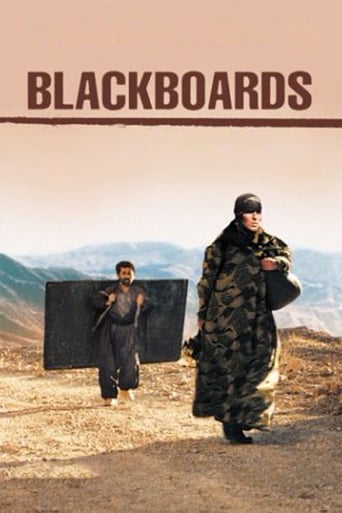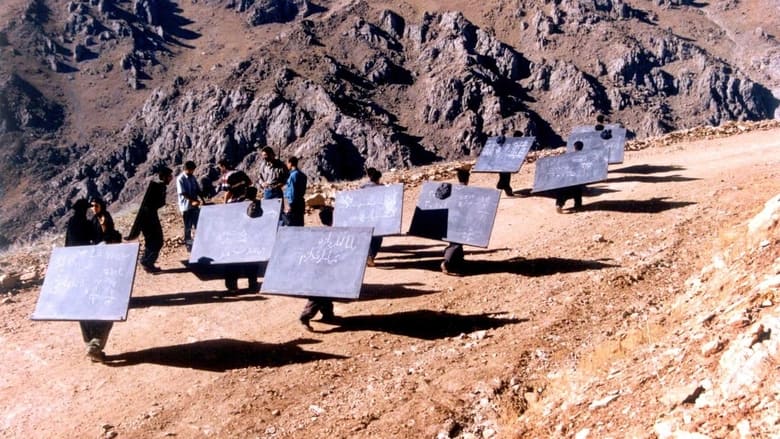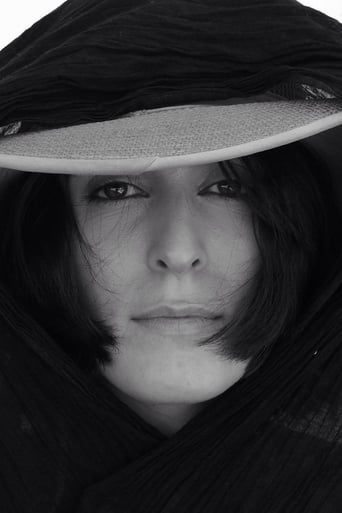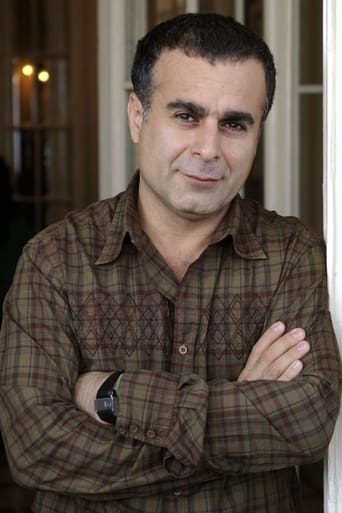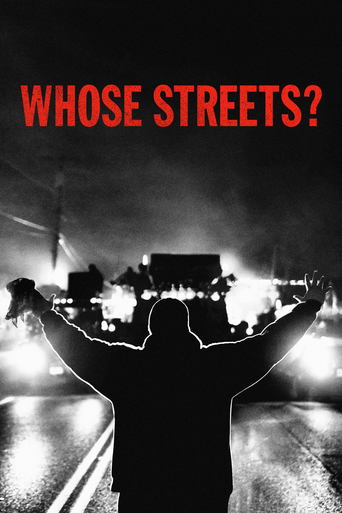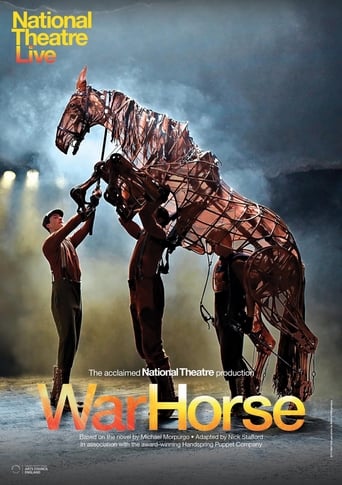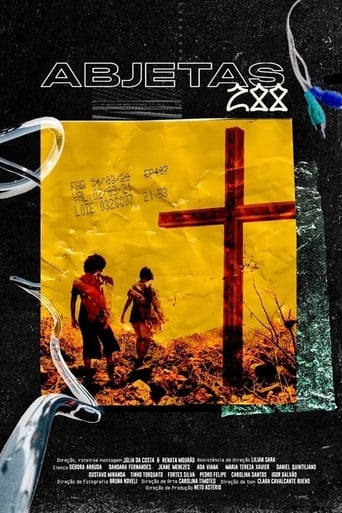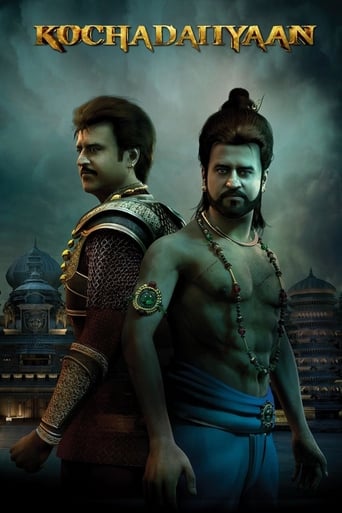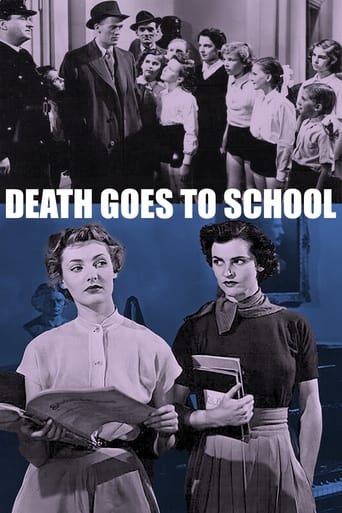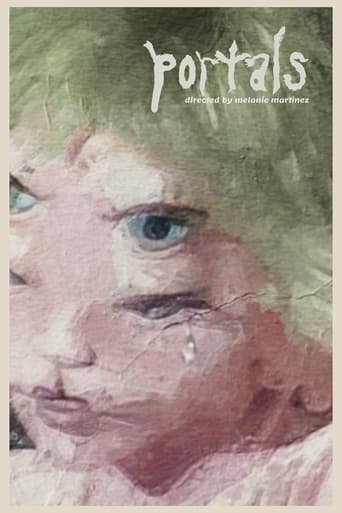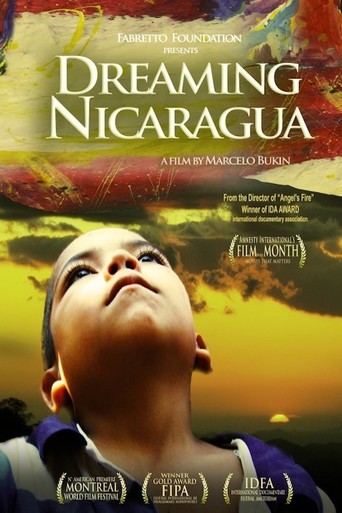Blackboards (2000)
Itinerant Kurdish teachers, carrying blackboards on their backs, look for students in the hills and villages of Iran, near the Iraqi border during the Iran-Iraq war. Said falls in with a group of old men looking for their bombed-out village; he offers to guide them, and takes as his wife Halaleh, the clan's lone woman, a widow with a young son. Reeboir attaches himself to a dozen pre-teen boys weighed down by contraband they carry across the border; they're mules, always on the move. Said and Reeboir try to teach as their potential students keep walking. Danger is close; armed soldiers patrol the skies, the roads, and the border. Is there a role for a teacher? Is there hope?
Watch Trailer
Free Trial Channels
Cast


Similar titles
Reviews
Purely Joyful Movie!
I cannot think of one single thing that I would change about this film. The acting is incomparable, the directing deft, and the writing poignantly brilliant.
There is, somehow, an interesting story here, as well as some good acting. There are also some good scenes
Strong acting helps the film overcome an uncertain premise and create characters that hold our attention absolutely.
Released in 2000, BLACKBOARDS was the second film by Samira Makhmalbaf, daughter of acclaimed Iranian auteur Mohsen Makhmalbaf and a precocious director in her own right. As the film opens, a group of itinerant teachers lug blackboards into the mountains of Iranian Kurdistan, seeking to bring education to this illiterate, impoverished region in exchange for some meagre income.Two of the teachers quickly branch off from the group, and the film follows their adventures. Saïd (Saïd Mohamadi) falls in with a group of nomads trying to get back to their native land across the border in Iraqi Kurdistan. Rebwar (Bahman Ghobadi) meets a group of children transporting contraband over the border. The teacher's efforts to help the locals learn to read and write are rebuffed time and time again, to the point that the film takes on the quality of a play by Samuel Beckett or Harold Pinter. Saïd's attempts to get through to the lone woman in the party (Behnaz Jafari) are the height of absurdism.Samira Makhmalbaf's visual aesthetic is mainly that of her father's early films, and the film evokes the beauty of this mountainous region, as well as the desolation that causes its poverty. And it's cool that the dialogue is in Kurdish, as there aren't so many films available in the West that highlight this people. However, I must say that I found other aspects disappointing. BLACKBOARDS makes a thought-provoking point that the poor are too busy surviving to worry about ideals like education, but the script doesn't really hang together. The acting is also inconsistent, with a big disconnect between the professional actors and the local Kurds who were brought on.You might take a chance on BLACKBOARDS. I certainly don't regret seeing it, it's memorable and there's some humour. But I remain unsatisfied.
Blackboards is a very good film: well acted and engaging. The story is fresh: a group of Iranian teachers with blackboards on their backs, trying to each undereducated Kurdish refugees how to read, write, count, et cetera.The film is filled with endearing characters: a sharp young boy working as a mule, a teacher desperately trying to teach those around him, an old man with urinary problems, a woman whose chaotic life has been extremely painful and just wants to be able to hold on to her son. Samira Makhmalbaf has revealed herself as a humane filmmaker with a good eye for drama in everyday life. The film is honest in its vision of a world where reading and writing seem so useless, where the only thing that matters is the ability to keep on moving. That is what makes the teachers' attempts to teach the many refugees so pathetic. I feel that a good filmmaker like Makhmalbaf, someone who has a story to tell and knows how to tell it, is better than the dozens of pretensions auteur filmmakers with their overblown visions and obnoxiously pointless powerhouse melodrama.
This wonderful movie (shown here as "Blackboards") demonstrates the power of cinema to communicate circumstances and situations that are totally alien to those of us watching in comfort during a U.S. film festival.The Director/Screenwriter, Samira Makhmalbaf, literally learned her trade at her father's elbow. He taught her well. Makhmalbaf was only twenty years old when she made this movie, but she has already acquired the skilled director's eye for filmmaking.The locale in which the film is set is totally alien to me. The mountains of Iran offer stones and more stones. I believe this is the first picture I have ever seen where there is not a single image of a tree or even a green plant. The mountains are made of rocks, and the homes are made of rocks, and most of the characters in the the films spend their time climbing up, down, and between the rocks.In this incredibly harsh, barren, non-nurturing environment, two young teachers carry blackboards on their backs and try to find someone--anyone--who wants to learn to read and write, and who can pay for this instruction.Obviously, the teachers are motivated by their basic needs for food, water, and shelter, but--like all good teachers-- they are also motivated by the desire to teach.Each teacher attaches himself to a group of people moving across a border. (I was never sure which border this was--I think it was from Iran to Iraq.)Each group has endured hardship and tragedy, and their journeys are filled with the threat of danger. Despite this, the teachers continue their attempts to teach. This movie was not only powerful, but it was informative. Anyone who thinks the mountains of Iran are more or less like the mountain meadows Julie Andrews encountered when she sang "The hills are alive with the sound of music," needs to see "Blackboards." Despite this hardship, human beings survive, and their desire to learn and to teach survives as well.An amazing film--not to be missed!THIS FILM WAS SEEN AT THE LITTLE THEATRE, DURING THE HIGH FALLS (ROCHESTER, NY) FILM FESTIVAL. THIS FESTIVAL IS NOT LARGE, BUT THE QUALITY OF FILMS IS OUTSTANDING. WOULD BE WORTH A SPECIAL TRIP IN 2003!
'Blackboards' is one of those films that has divided audiences between fanatical admirers and grumbling dissenters. The former admire the director's skilful juggling between formalism and humanism, individual quests and social movements, private moments and public set-pieces; her filming of landscape; her eliciting of unsentimental, compelling performances from an amateur cast; her insistence on enigma and loose ends; her portrait of life in extreme, harrowing conditions. The dissenters bemoan her fudging of politics - sure, she shows the exploitation of children, the mass displacement of the Kurds, and the murderous terror lurking behind every rock, but by refusing to put these in a contextual framework, such depictions are blunted in political force.there is a whiff of misogyny to me in these complaints. It's okay for men to make ambitious, universalising statements, but women must remain concerned with the local. Presumably Makhmalbaf would have been more political if she had concentrated on authenticating the patterns on the women's dresses. Of course, culture in general has moved towards the local: with post-modernism, very few artists have had the confidence to think on a large scale (I don't mean make large-scale films, which any fule kan do).This is presumably why 'Blackboards' reminds me of older types of artists. Most immediately, it could be a massive Beckett play, full of wandering vagrants in a vast, desolate landscape, peopled with Lucky-like slaves, surrounded by an unseen, God-like menace, occasionally erupting in capricious violence. Like Beckett, there is no real beginning or end, no context, just a sense of never-ending repetition with the only possible relief in death.Like Beckett (eg 'Waiting for Godot'), culture has no place in such an environment, indeed, seems a grotesque irrelevance, an incomprehensible babble, traces scraped in a landscape no-one can read now, never mind in the future. And yes, the film is as unremittingly hopeless as a Beckett play - there is no progress or redemption here. But it is as bleakly funny too - eg the whole marriage farrago between Said and Hahaleh; the game of marbles watched by her son; the tragicomic, very Beckettian inability of her aged father to relieve himself.In the film world, 'Blackboards' reminds me of no-one so much as Angelopolous, especially in a film like 'The Travelling players', where a group of itinerant outsiders observe and become absorbed in an unfamiliar community. Makhmalbaf has Angelopolous' confidence in allegory, a way of dramatising in mythic form life and displacement under a totalitarian regime, without in any way 'abstracting' the violence and pain.The empty landscapes suddenly being inexplicably over-run by faceless crowds also has the millenarial feel of Andersen's recent 'Songs from the second floor', or later Bunuel, from whom the theme of the journey, coming across strange, surreal strangers (eg the uncanny scene with the masked gardener whose son languishes in an Iraqi jail), or images such as the blackboard-hauling men like grounded birds watching blackbirds in the sky, and overhearing another, ominous, unseen flying object, derives. There are many, many ways of being political.Unlike these masters, however, who prefer irony and distant tableaux, Makhmalbaf, through restless handheld camerawork, gets right in between her characters and makes us feel for them.

